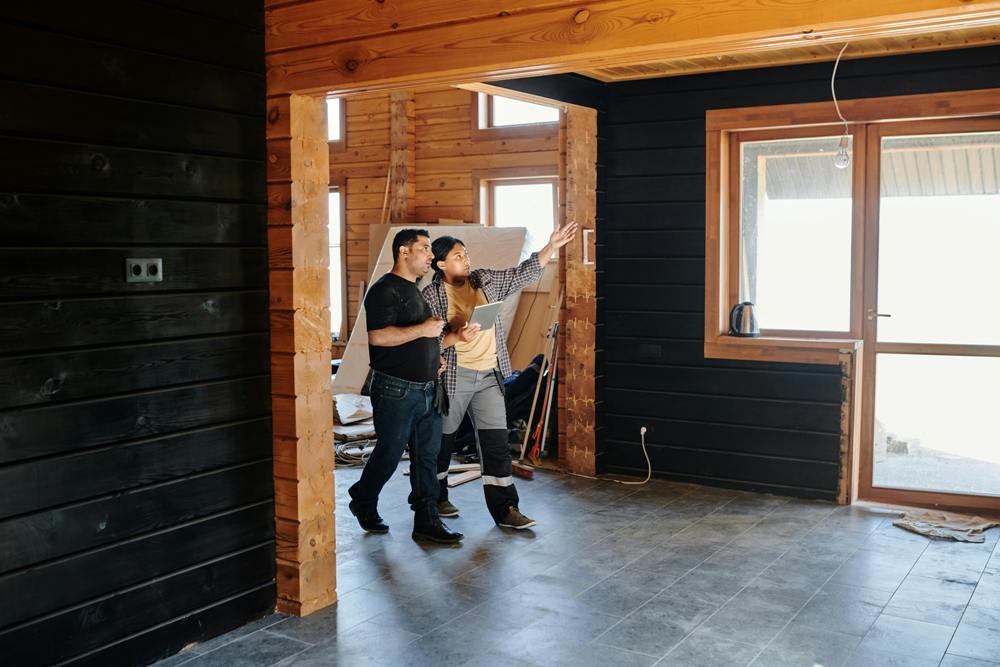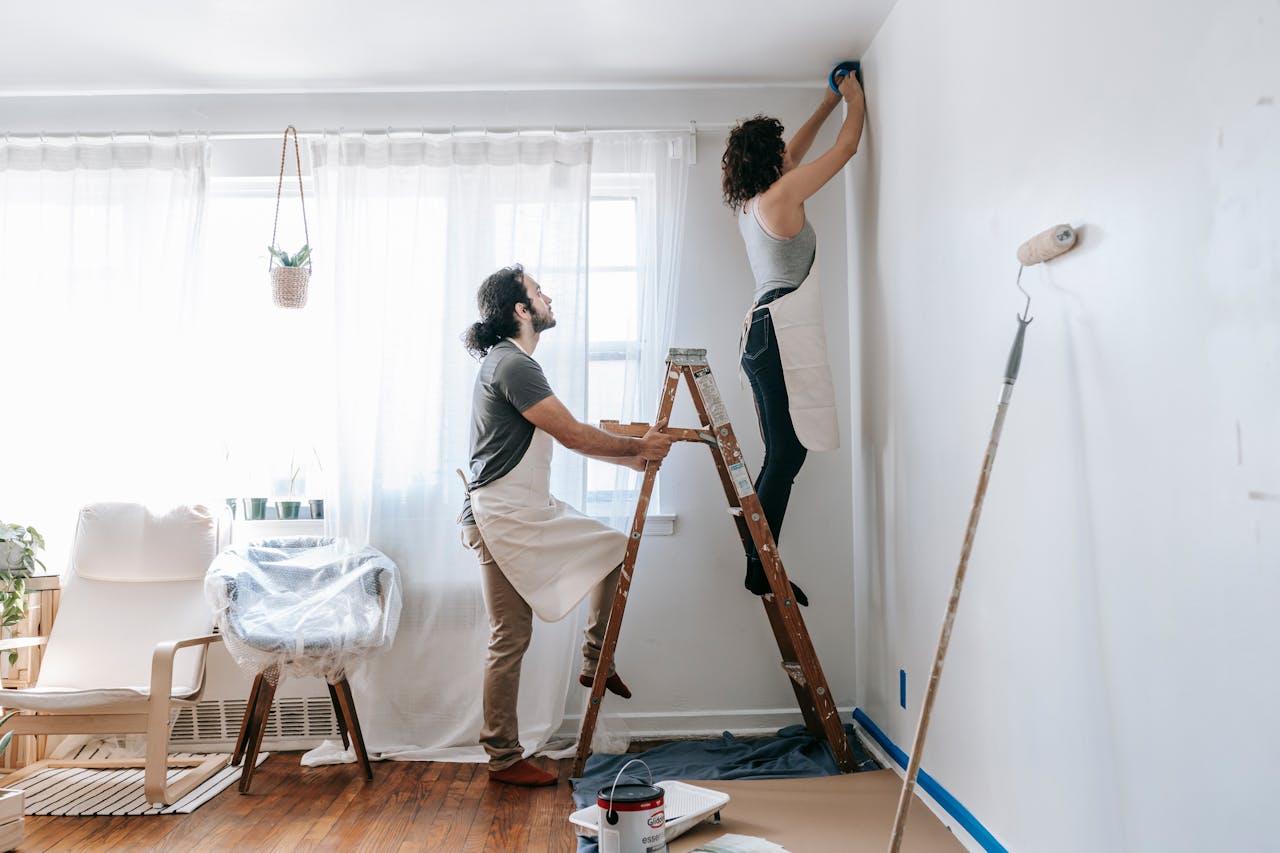
Embarking on a home renovation journey can be exhilarating yet overwhelming. Whether you’re revamping your kitchen, updating your bathroom, or giving your entire home a facelift, proper planning is essential. With the right checklist in hand, you can navigate through the renovation process smoothly, ensuring that every detail is accounted for. Here is out home renovation checklist.
Assessing Your Needs and Budget
Evaluate Your Needs
Before diving into any renovation project, take a step back and assess what you truly need. Are you looking to create more functional space? Do you dream of a more open-concept layout? Identifying your needs will help you prioritize tasks and allocate resources efficiently. Consider factors such as lifestyle changes, family size, and long-term goals when evaluating your renovation needs.
Set a Realistic Budget
One of the most critical aspects of any renovation is setting a budget. Determine how much you’re willing to invest in your project and ensure it aligns with your financial capabilities. Factor in not only the cost of materials and labor but also any additional expenses such as permits, design fees, and contingency funds for unexpected costs. Be realistic about what you can afford and prioritize your renovation wishlist accordingly.
Planning and Research
Research Design Ideas
Gather inspiration from various sources to develop a clear vision for your renovation project. Explore home renovation magazines, websites, and social media platforms like Pinterest and Instagram to discover design trends, color schemes, and layout ideas. Create a vision board or mood board to visualize your desired aesthetic and communicate your preferences to your design team or contractor.
Hire Professionals
While some DIY enthusiasts may be tempted to tackle certain aspects of their renovation themselves, certain projects require the expertise of professionals. Research and hire reputable contractors, architects, and designers who specialize in the type of renovation you’re undertaking. Look for professionals with experience, positive reviews, and a portfolio that aligns with your vision. Collaborating with skilled professionals can save you time, money, and stress in the long run.
Obtain Necessary Permits
Before commencing any construction work, it’s essential to obtain the required permits and approvals from your local government or homeowners’ association. The permit process ensures that your renovation complies with building codes, zoning regulations, and safety standards. Failure to obtain the necessary permits can result in costly fines, delays, or even forced removal of completed work. Consult with your contractor or local building department to determine the specific permits required for your renovation project.
Preparing Your Space
Clear Out Clutter
Before the renovation begins, declutter and clear out the area to be renovated. Remove furniture, appliances, and personal belongings to create a clean slate for the construction crew. Consider renting a storage unit or temporarily relocating items to other areas of your home to keep them safe and out of the way during the renovation process. Decluttering not only makes the renovation process smoother but also allows you to assess the space more accurately and plan for storage solutions in the final design.
Protect Surrounding Areas
Minimize dust, debris, and damage by taking proactive measures to protect adjacent spaces during the renovation. Use plastic sheeting or drop cloths to cover floors, furniture, and fixtures that are not being renovated. Seal off doorways and vents to prevent dust from spreading throughout your home. Consider investing in temporary barriers or partitions to create a designated construction zone and minimize disruptions to the rest of your living space. Taking these precautions will help maintain cleanliness, safety, and orderliness throughout the renovation process.
Execution and Construction
Monitor Progress
Stay actively involved throughout the renovation process by monitoring progress regularly. Communicate openly with your contractor and address any concerns or issues promptly to avoid delays or misunderstandings. Schedule regular check-ins or site visits to observe the workmanship, ensure adherence to the timeline, and discuss any necessary adjustments or changes to the plan. By staying informed and engaged, you can maintain control over the renovation process and ensure that your vision is realized to your satisfaction.
Stick to the Plan
While it’s natural for unexpected challenges to arise during renovation projects, try to adhere to the original plan as much as possible. Deviating too far from the initial design or scope can lead to budget overruns, timeline extensions, and unnecessary stress. Be flexible and open to minor adjustments or improvements along the way, but avoid making impulsive decisions that may derail the entire project. Communicate any proposed changes with your contractor and weigh the potential impact on cost, schedule, and overall project goals before proceeding.
Quality Control
Ensure that all work meets your standards and specifications by implementing a robust quality control process. Conduct walkthroughs with your contractor at various stages of the project to identify any deficiencies or areas that require attention. Pay close attention to details such as finishes, fixtures, and craftsmanship to ensure consistency and excellence throughout the renovation. Address any concerns or discrepancies promptly with your contractor to ensure that they are resolved to your satisfaction before the project is considered complete.
Finishing Touches and Final Inspections
Add Personal Touches
Inject personality into your renovated space by adding personalized touches that reflect your style and preferences. Incorporate elements such as artwork, décor, and accessories that complement the overall design aesthetic and enhance the functionality of the space. Consider DIY projects or custom solutions to add unique character and charm to your home. Whether it’s a gallery wall of family photos, handmade pottery, or vintage finds, these finishing touches can make your renovated space feel warm, inviting, and uniquely yours.
Conduct Final Inspections
Before declaring the project complete, conduct a thorough inspection of the renovated area to ensure that every detail meets your expectations. Check for any defects, incomplete work, or issues that need to be addressed before handing over the final payment to your contractor. Test all systems, appliances, and fixtures to ensure they are functioning correctly and safely. Document any discrepancies or concerns and communicate them to your contractor for resolution. Once you are satisfied with the results and have addressed any outstanding issues, sign off on the project and celebrate the successful completion of your home renovation.
Conclusion: Home Renovation Checklist
Embarking on a home renovation journey can be both exciting and daunting. By following a home renovation checklist and staying organized throughout the process, you can transform your space with confidence and ease. Remember to prioritize your needs, set a realistic budget, and enlist the help of professionals when needed. With proper planning, execution, and attention to detail, your dream home is within reach.

FAQs
How do I create a realistic budget for my home renovation?
To create a realistic budget, research the average costs of materials and labor for your desired renovation, factor in additional expenses for unexpected costs, and prioritize essential elements within your budget constraints. Consider consulting with a financial advisor or contractor for guidance on budgeting for your renovation project.
Do I need permits for my home renovation project?
The need for permits depends on the scope of your renovation project and local building codes. Contact your local government or homeowners’ association to determine the specific permit requirements for your renovation. Failure to obtain necessary permits can result in fines, delays, or even legal repercussions.
How long does a typical home renovation project take?
The duration of a home renovation project varies depending on factors such as the scope of work, size of the project, availability of materials, and contractor scheduling. It’s best to discuss timelines with your contractor during the planning phase and establish clear expectations for project milestones and completion dates.
Should I hire a contractor or attempt DIY renovations?
While some tasks may be suitable for DIY enthusiasts, certain renovations require professional expertise to ensure safety, quality, and compliance with building codes. Assess your skills, available time, and the complexity of the project before deciding whether to hire a contractor or tackle the renovation yourself. Consider consulting with a contractor or architect for advice on the feasibility of DIY renovations for your specific project.
How can I ensure quality workmanship during my home renovation?
To ensure quality workmanship, thoroughly research and vet potential contractors, communicate openly throughout the project, conduct regular inspections, and address any concerns or issues promptly with your contractor. Request references, review past projects, and ask detailed questions about materials, techniques, and warranties to assess the contractor’s expertise and professionalism. Building a positive working relationship with your contractor and maintaining clear lines of communication can help ensure that your renovation project is completed to your satisfaction.
